A sideways look at economics
For some this is the most wonderful time of the year. While I’m not usually one to shy away from overindulgence and mindless consumerism, I struggle with London in December. It’s cold. It’s dark. Mariah Carey’s voice permeates. The winter solstice is next Friday, and I can’t wait. Indeed, during weak moments, the combination of short days and poor weather makes me question whether I’m getting tired of London. No, I’m not tired of life. But maybe I’m getting fed up of restaurants that don’t take reservations, and only being able to wear flip-flops for a few weeks per year. My childhood was mostly spent in Kenya. Back then, I understood winter to be that time of the year when I would have to put on a sweater and worry about the rain. Now, that describes a decent part of my summers. Is there somewhere better to live?
With around 200 countries in the world, deciding which to call home feels like an impossible task. Creatures of habit, most people simply stay in the one where they were born. For those seeking a change of scene, internationally comparable data can help to narrow down their options. Given the time of the year, it’s hard to start with anything but the weather. I chose it as the first filter in this Royal Rumble of nations. With a fondness for the climate of the equator, I opt for something resembling that: warm on average, but never too hot or too cold. Using a monthly database of average temperatures over the years 1961 to 2011, I rule out all countries that have a single month with a temperature below 5 or above 35 degrees Celsius. The UK, along with most of Europe, falls at the first hurdle.[1]
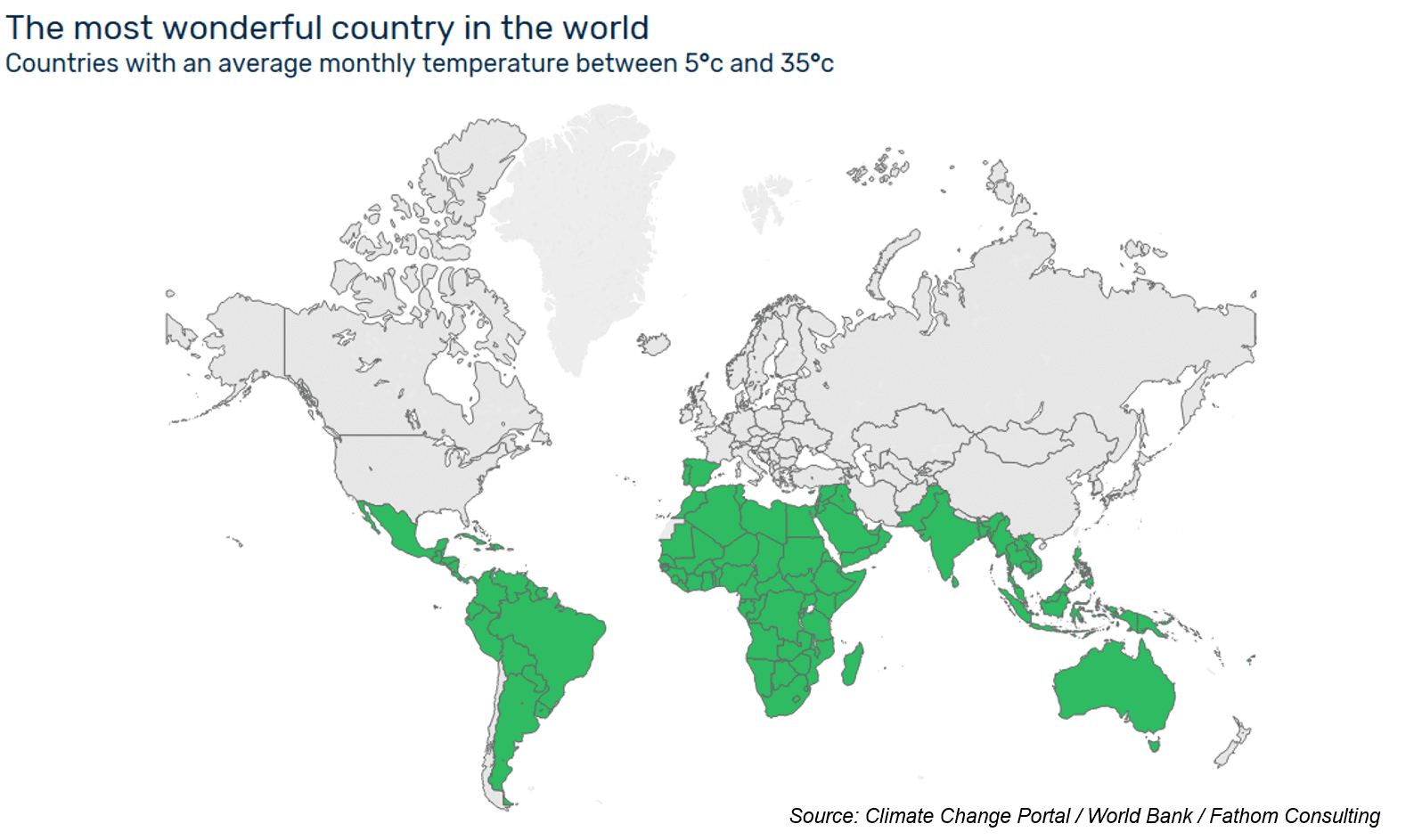
But there’s clearly more to life than warm weather. As many Kenyan citizens know, sunny weather only takes you so far. Standards of living matter. The available evidence finds that money does buy happiness, but only up to a point. More than a decade ago, Lord Layard found that increases in income up until $15,000 could be linked with increased happiness. Anything more and there was no real effect. Allowing for inflation, I filter further to remove all countries that have a GDP per capita below $20,000 (PPP-adjusted) — a threshold, incidentally, that’s very close to the world average. From almost 200, we’re already down to just 20 countries.
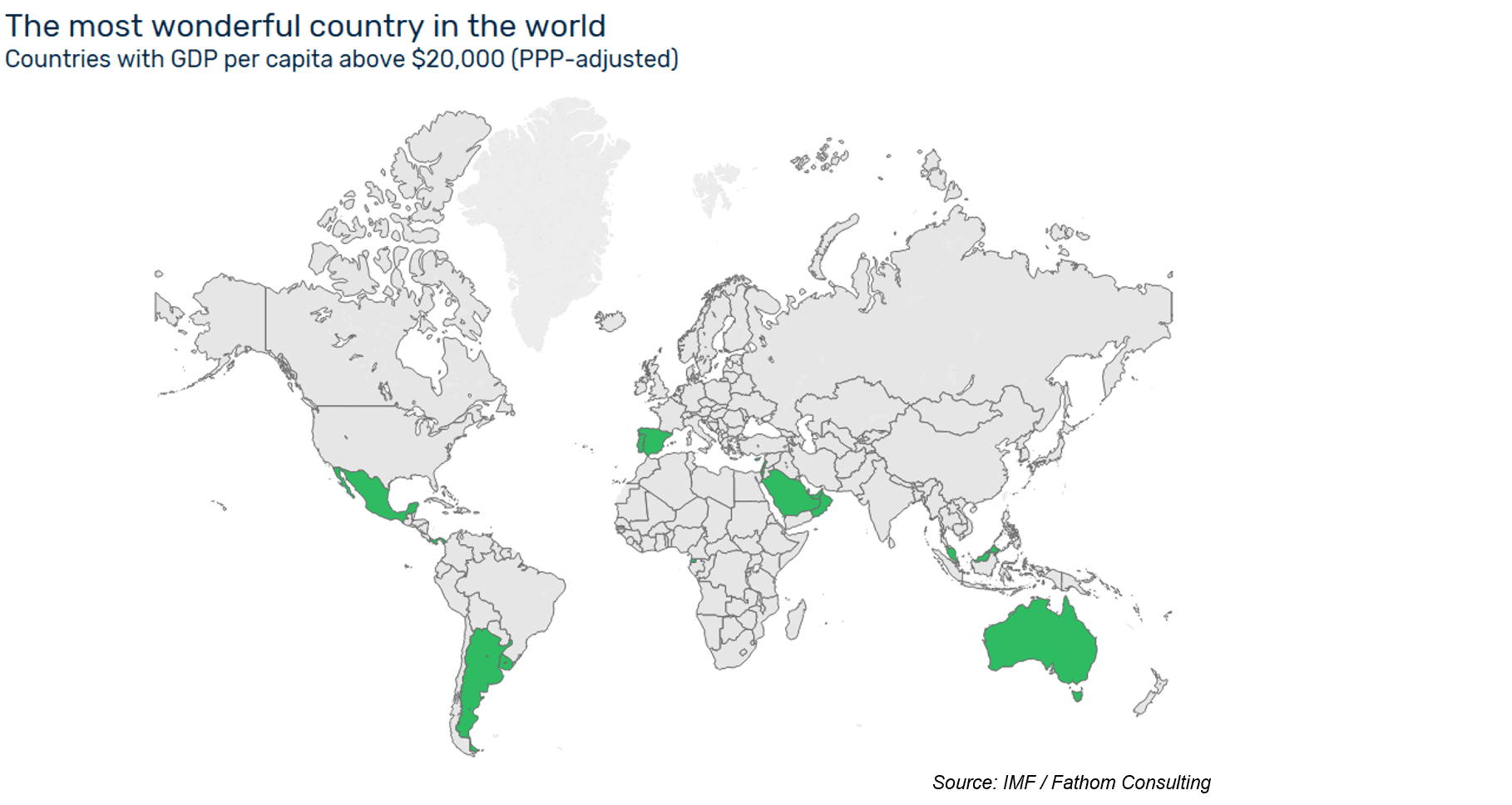
At this point, some might add a measure of safety. But I have successfully navigated Nairobi, not to mention South London, so I’m ready to take some risk. However, I’m not willing to tolerate living under an oppressive dictator. Democracy is a must-have. But how much is another matter altogether. With the rise of populism and illiberal democracy around the world, I recognise that letting people have a say doesn’t always go to plan. I decide to rule out all countries that are ranked below average on the World Bank’s measure of voice and accountability. Doing this eliminates a couple of countries in the Middle East.
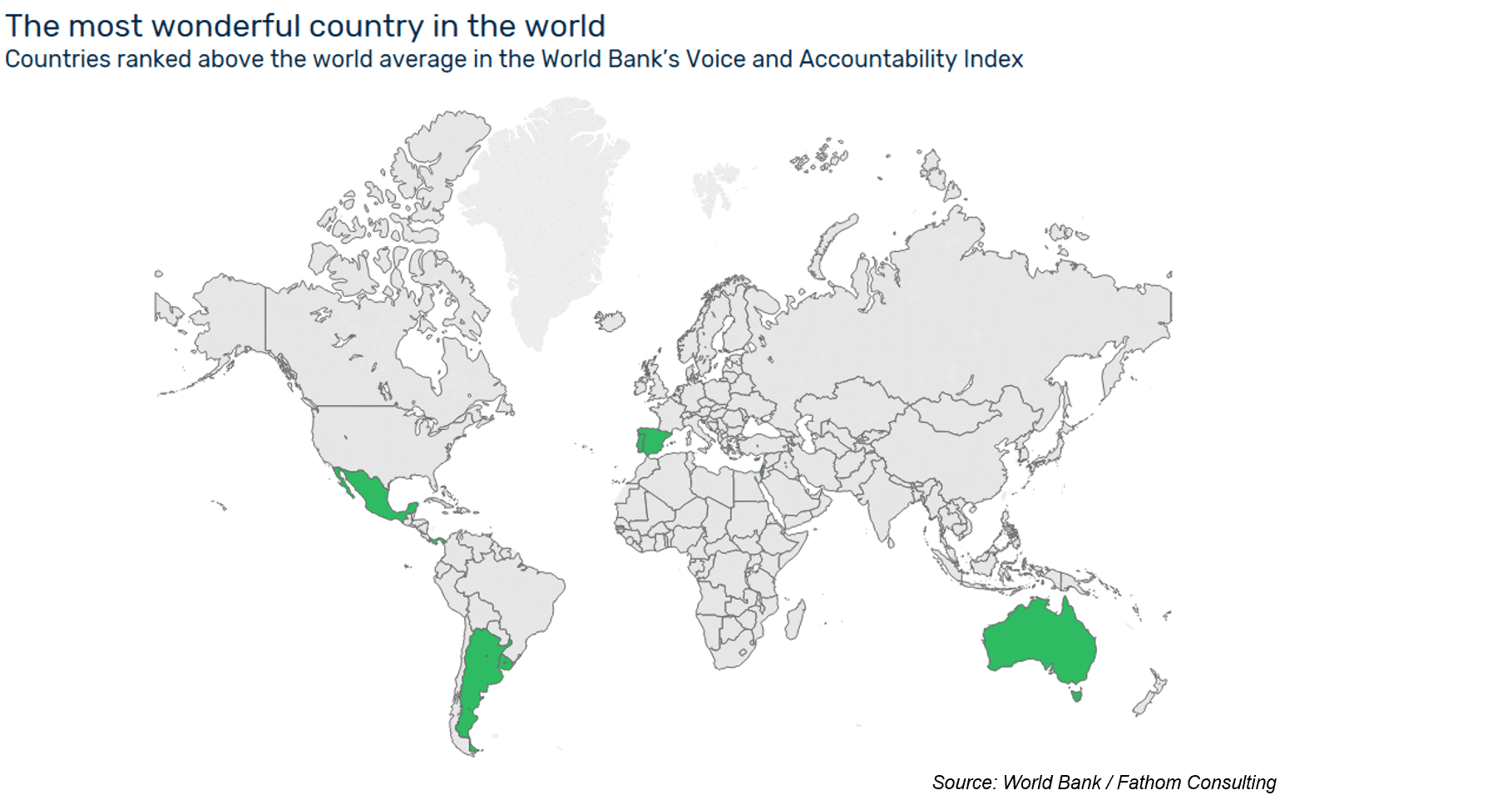
Despite an almost endless list of things to do, many of them free, Londoners are the least happy in the UK. Improving one’s health and wellbeing would form a central plank in any attempt to escape the rat race. Compared to many, my commute to work would seem to be relatively pleasant: 20 minutes by bike. However, a large part of that is spent inhaling the fumes of idle buses and taxis on a clogged London Bridge. If I’m going to give up living somewhere with easy access to pints of Kernel beer and the South Bank, it’s going to need to be somewhere with clean air. On the wrong side of 30, I decide that only countries in the top 25% with regards to air quality will do. Unfortunately, this means that Mexico drops out. Future strands of research in this field could look into placing some emphasis on the availability of quality tacos. Currently there are data availability issues.
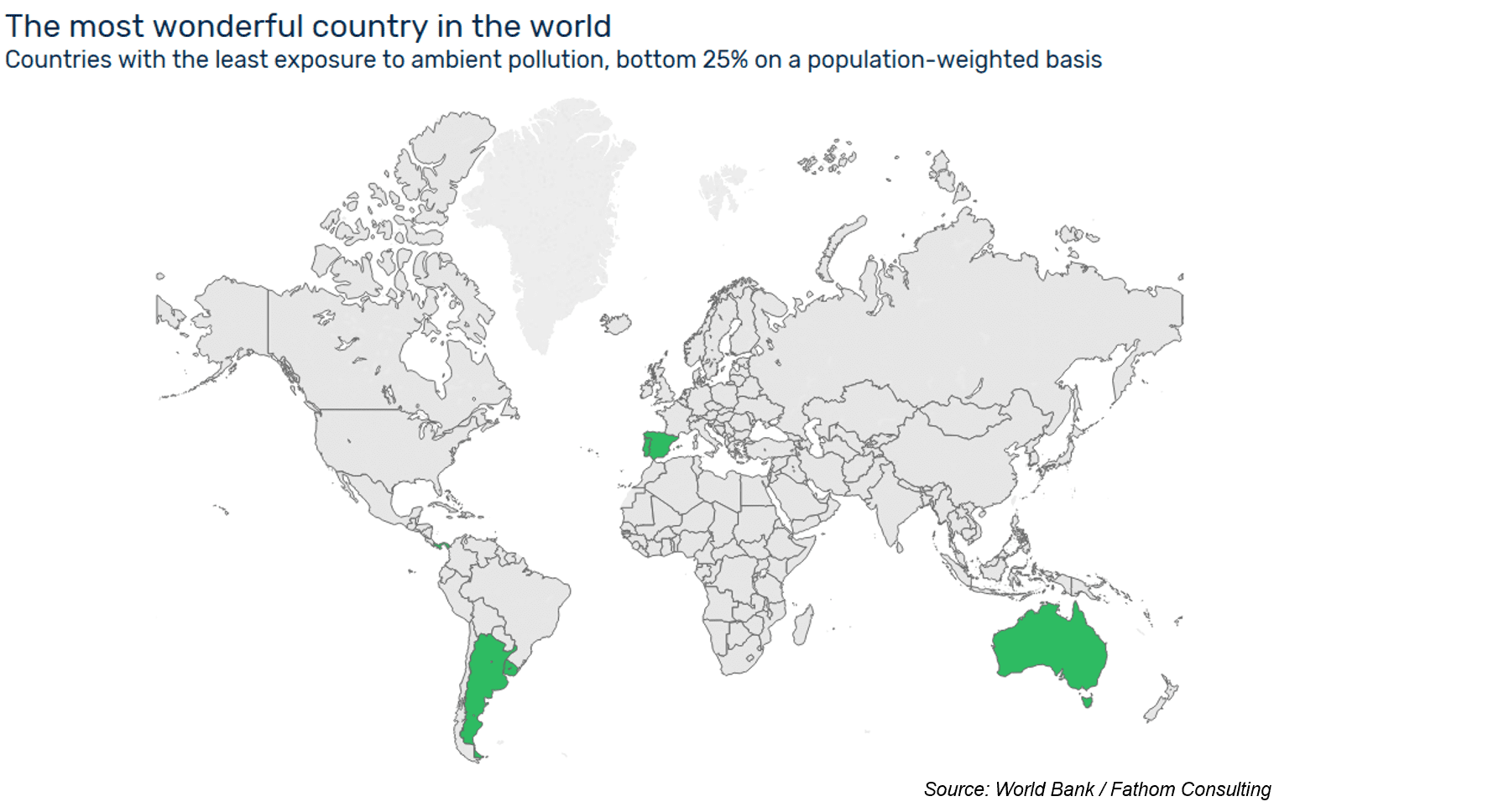
We’re left with seven. While I have pondered a future life as an AirBnB mogul during weekend breaks to Spain and Portugal, Panama had never jumped out at me as somewhere to live. What next? As the final threshold, I opt for freedom. Perhaps the primary attraction of this heaving metropolis is the ability to live your life with large impunity, no matter where you’re from or what you believe. Individual liberty is non-negotiable. That’s the final piece of the puzzle. I filter to only include countries that are ranked in the top 20 on residents’ perception of having the freedom to make life choices. We are left with three: Australia, Panama and Uruguay.
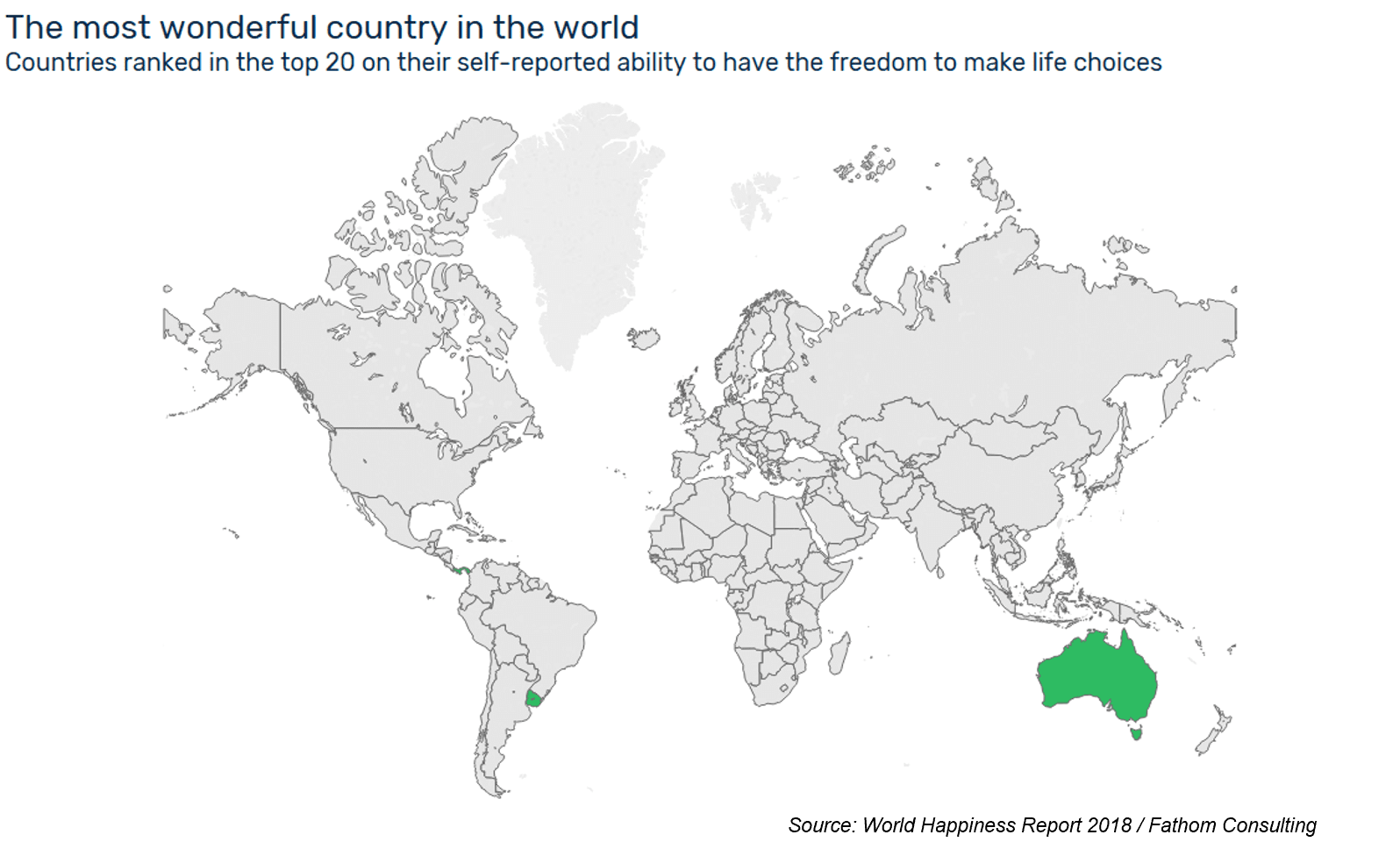
On the surface, Australia seems like a winner: same language and finding a job would probably be easier too. People vote with their feet, and it’s the top choice for UK emigrants. But I rule it out on the basis that there are too many creatures that might kill me. I’ve seen the negative effects of living in a place filled with offshore money, so Panama doesn’t work either. Uruguay is the last one standing. A country, it seems, that punches above its weight in more things than football. Before buying a one-way ticket to Montevideo, however, there’s surely time for a quick Kernel pale ale.
[1] Given the varying size of countries, there would be some merit to doing this analysis by geographic area. Many states in the US would pass my tests: Hawa’ii would be a strong favourite to finish top, given the Aloha state’s better air quality over California.